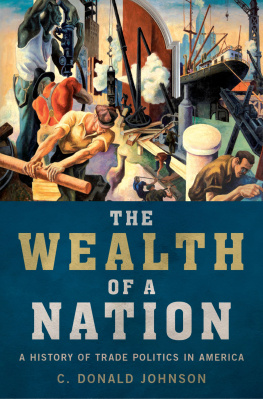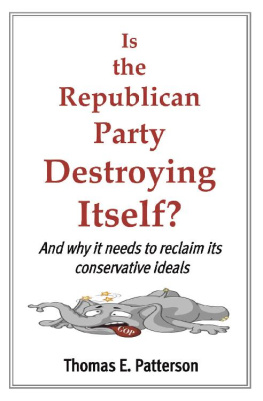Contents
Guide
MADISONS SORROW
Pegasus Books Ltd.
148 W. 37th Street, 13th Floor
New York, NY 10018
Copyright 2020 by Kevin C. OLeary
First Pegasus Books cloth edition May 2020
All rights reserved. No part of this book may be reproduced in whole or in part without written permission from the publisher, except by reviewers who may quote brief excerpts in connection with a review in a newspaper, magazine, or electronic publication; nor may any part of this book be reproduced, stored in a retrieval system, or transmitted in any form or by any means electronic, mechanical, photocopying, recording, or other, without written permission from the publisher.
Jacket design by Derek Thornton, Notch Design
Cover art courtesy of Shutterstock Images
Author photo credit Jamie Goto.
Library of Congress Cataloging-in-Publication Data is available.
ISBN: 978-1-64313-434-5
ISBN: 978-1-64313-435-2 (eBook)
Distributed by Simon & Schuster
www.pegasusbooks.us
To
Lita Elen Robinow
I would not wish any companion in the world but you.
Shakespeare
Seldom have two ages the same fashion in their pretexts and the same modes of mischief. Wickedness is a little more inventive. Whilst you are discussing fashion, the fashion is gone by. The vice assumes a new body. The spirit transmigrates; and, far from losing its principle of life by its change of appearance, it is renovated in its new organs with the fresh vigour of a juvenile activity. It walks abroad; it continues its ravages.
Edmund Burke, Reflections on the Revolution in France, 1790
Your purpose, then, plainly stated, is that you will destroy the Government, unless you be allowed to construe and enforce the Constitution as you please, on all points in dispute between you and us. You will rule or ruin in all events.
Abraham Lincoln, Cooper Union Address, 1860
Ive struggled to understand how people whove spent a lifetime chest-beating about patriotism can be so willing to burn liberal democracy to the ground to protect a man they wouldnt trust to sell them a used car.
Michelle Goldberg, The New York Times, 2019
PREFACE
I think the Enlightenment project is dead. The Left is so tribal, that a few on the right have decided that well, like it or not, those are the terms of engagement. A conservative friend sent me an email that opened with these two sentences. I hope Scott is wrong because modern constitutional democracy is the child of the Enlightenment. In proclaiming all people fundamentally equalwith the capacity to think critically for ourselves and to debate with othersthe United States showed the world that it is possible for a people to govern themselves instead of turning power over to kings or authoritarian dictators. In this, America is the Enlightenments grand experiment.
Theories abound about what has gone wrong. Yes, America is more partisan and polarized; the Blue/Red divide has deepened since the 1990s. Yes, gerrymandering has contributed to fewer swing seats oscillating between the two parties. This causes lawmakers to think more about electoral challenges from zealots on their partisan flank than from the middle. Yes, the digital revolution has created a new economic reality, and global competition, coupled with immigration fears, has produced a populist reaction. Yes, the younger generation is less white and more cosmopolitan than the baby boom generation that now counts grandchildren.
But something deepersomething tectonichas shaken our political core. Like the Civil War, this crisis is political, not economic. Its about our identity as Americans and our commitment to the ambitious ideal that has set us apart as a nation. Do we continue as the city upon a hill, the eyes of all people are upon usthe message of Pilgrim John Winthrop and President Ronald Reagan? Or will a new and powerful combination of sinister social forcesthe mixture of which we have never experienced beforeset us on a different road?
In 1787, at the conclusion of the Constitutional Convention, Elizabeth Willing Powell, one of the most important women of the founding era, addressed Benjamin Franklin, Well Doctor, what have we gota republic or a monarchy? Franklin replied, A republic, if you can keep it. In order to invigorate, protect, and keep our democratic republic, it is imperative to know what threatens it.
INTRODUCTION The Birth of Reactionary America
T he moment when a new and powerful Frankenstein monster first walked onto the American political stage can be marked with precision. In July 1964, at the high-water mark of New Deal liberalism, Arizona Senator Barry Goldwater was preparing to accept the Republican Partys nomination as its presidential standard-bearer. Goldwater had earned a reputation for his severe libertarian, strict-constitutionalist philosophy. Because of his unequivocal opposition to New Deal reform liberalism, and especially because of his principled stance against civil rights, Goldwater was approached by an unusual emissary just prior to the GOPs national convention in San Francisco. A Goldwater Republican from Alabama arrived carrying an outrageousyet prescient and politically potentrequest to the Arizona senator.
Darling of the New Right, Goldwater broke with his Republican colleagues in the Party of Lincoln to side with white Southern Democrats in opposing the Civil Rights Act of 1964. Facing a Democratic Party championing civil rights, Goldwater told a group of Atlanta Republican activists that it was time to go hunting where the ducks are. He understood that white Southernersthe duckswould only abandon their longstanding commitment to the Democratic Party if Republicans suddenly became conservative on race. In his 1960 best seller, The Conscience of a Conservative, Goldwater wrote that race issues were best decided by the states and during the Senates debate on the Civil Rights Act he declared that while he personally opposed racial discrimination, national legislation would result in a federal police force of mammoth proportions and lead to neighbors spying on neighbors.
The Republican delegate coming to meet Goldwater was Jim Martin, a former United States Senate candidate. Martin was mowing his lawn the day before he was scheduled to fly to San Francisco when his wife, Margaret, called him to receive a call from the governor. George Wallace told Martin that he was sending a state plane to the local airport and wanted him to fly to Montgomeryimmediatelyand secretly meet in the governors suite at the Jefferson Davis Hotel. As Martin took his car keys, Margaret objected that he still had his yardwork clothes on. Jim told her not to worry, as he would be back soon. Security men hid Martin from view when he arrived for his meeting with Governor Wallace, the leading political voice defending Southern white supremacy and a wily foe of Presidents Kennedy and Johnson and the civil rights movement led by Martin Luther King Jr.
Eager to cement his status as the idol of the white racist South, Wallace was a shrewd politician. He understood that the only way the South could fight off a second Reconstruction was by making an alliance with Northern business interests and the antiNew Deal wing of the Republican Party. Wallace met with Martin for three hours, whereupon Martin was informed that the governor would be the perfect choice as Goldwaters vice presidential running mate. As Martins jaw dropped (Wallace was a Democrat, not a Republican), the governor continued: Now youve got to pretend that this is your original idea It didnt come from me, but you think you can persuade me. One participant recalls Wallace saying in the racist speech that was typical of the precivil rights South, it must be apparent to a one-eyed nigguh who cant see good outa his other eye, that me and Goldwater would be a winning ticket. Wed have the South locked up, then him and me could concentrate on the industrial states of the North and win.









